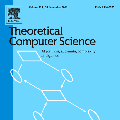How to recover a probability measure with sparse support from particular moments? This problem has been the focus of research in theoretical computer science and neural computing. However, there is no polynomial-time algorithm for the recovery. The best algorithm for the recovery requires $O(2^{\text{poly}(1/\epsilon)})$ for $\epsilon$-accurate recovery. We propose the first poly-time recovery method from carefully designed moments that only requires $O(\log(1/\epsilon)/\epsilon^2)$ computations for an $\epsilon$-accurate recovery. This method relies on the recovery of a planted two-layer neural network with two-dimensional inputs, a finite width, and zero-one activation. For such networks, we establish the first global convergence of gradient descent and demonstrate its application in sparse measure recovery.
翻译:如何在特定时刻支持不足的情况下恢复概率测量? 这个问题一直是理论计算机科学和神经计算研究的重点。 但是, 恢复没有多元时间算法。 恢复的最佳算法需要美元( 2 ⁇ text{poly}( 1/\\ epsilon) $), 美元( $) 准确的恢复。 我们建议了从仔细设计的时刻恢复第一个多时方法, 只需要美元( log( 1/\ epsilon) /\\ epsilon) 来计算 $( epsilon) 的恢复。 这个方法依赖于恢复一个有二维输入、 有限宽度和 零一激活的人工双层神经网络。 对于这些网络, 我们建立第一个全球梯度下降的趋同, 并展示其在稀少度恢复中的应用 。




